Libby Denkmann
Host, Soundside
About
Libby Denkmann has covered veterans' issues, homelessness, and local politics during her radio journalism career. She became the host of KUOW's Soundside in November 2021. Previously she was a producer, reporter, anchor, and host for stations KIRO, KFI, and KPCC in Seattle and Los Angeles. During a yearlong hiatus from journalism in 2011, she worked as a congressional staffer in Washington, D.C.. Libby was born in Seattle, grew up on the eastside, and graduated from the University of Washington. Her favorite things include soccer, video games, and her dog, Monty.
Location: Seattle
Languages: English, limited Japanese and Portuguese
Pronouns: she/her
Podcasts
Stories
-

Politics
'Asking for the right to dream.' The view of Haiti’s gang crisis from Seattle
The situation in Haiti, which is caught in the grip of a weeks-long outbreak of gang violence, is “90% chaos,” according to Pierre Stanley Baptiste, the managing director and co-founder of the co-working space Impact Hub Port-au-Prince. The Impact Hub is supported by Kay Tita, a Seattle-based social impact organization that supports Haitian entrepreneurs and small business owners.
-
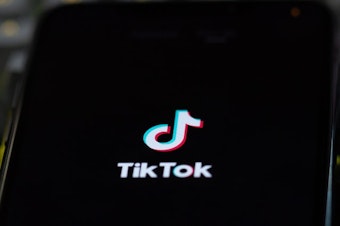
Technology
As Congress pushes potential TikTok ban forward, users wonder what happens next
Last week, the House of Representatives voted overwhelmingly to force TikTok’s Chinese parent company, ByteDance, to sell the video sharing platform within 180 days. If that doesn’t happen, TikTok could be banned from U.S. app stores and web hosting platforms. Now the legislation heads to the Senate, and its future is far from clear.
-

How will Seattle's next comprehensive plan shape the city?
Seattle is touting a "measured approach" to density in its comprehensive plan, but critics say it won't lead to enough housing.
-
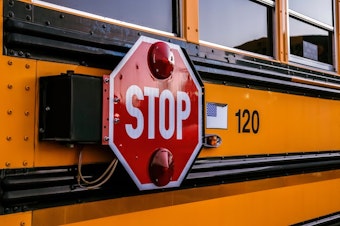
Education
School budget shortfalls mean hard choices for Seattle area districts
Schools around the region are dealing with serious budget shortfalls. The Northshore School District says it’s $26 million in the red, and Seattle Public Schools is reporting a more than $100 million gap in funding. Making up that money is no easy task – and in many cases, the scarcity means cuts to programs students and parents hold dear, like AP and music classes.
-

Technology
Artists vs AI: Indie creators are noticing the emergence of artificial art
Soundside Producer Jason Burrows shares his story from Emerald City Comic Con, where he talked to artists about their thoughts on Generative AI.
-
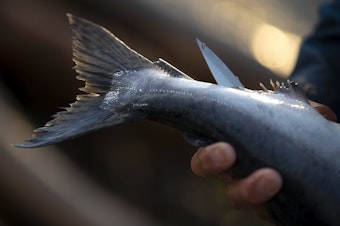
Government
Why the billions spent fixing Washington culverts may not be saving many salmon
Washington state will spend an estimated $7.8 billion on restoring salmon habitat by 2030, according to a new Seattle Times report. But the potential outcome of all that spending is as murky as a stream full of silt.
-

Law & Courts
Do doctors have a right to free speech, even when it includes spreading misinformation?
John Stockton is a basketball legend. He’s the all time NBA leader in assists – feeding passes to Jazz teammates like Karl Malone. Their partnership is still revered by superfans of a certain age. Now, Stockton is assisting another group of people: doctors who felt persecuted by Washington state’s COVID speech policies. The Hall of Fame point guard, and Spokane resident, filed a lawsuit last week against the state Attorney General’s office. The filing itself says that quote: “the purpose of this lawsuit is to protect the right of physicians to speak, and the right of the public to hear their message.”
-
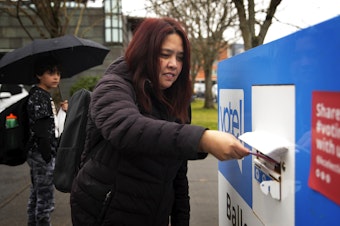
Elections
Washington's presidential primary results weren't surprising. So, what's motivating voters?
The results of Tuesday's presidential primary elections in Washington and elsewhere were to be expected.
-
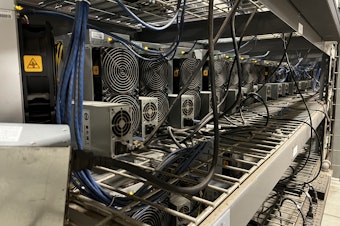
Technology
As Bitcoin surges to new heights, so do concerns over its energy use
Earlier this year, the Department of Energy sought to do a survey on the total power usage of crypto operations throughout the country. But that plan was scrapped following legal pushback from those in the industry, leaving a big question mark about the impacts of crypto mining on electrical grids and greenhouse gas production.
-
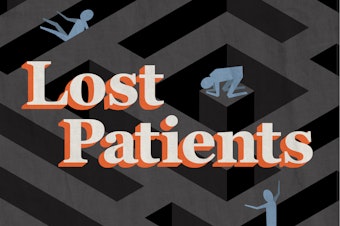
Health
Why do so many people with severe mental illnesses go untreated in WA?
Seven percent of Washingtonians live with a serious mental illness - that’s the second highest level in the nation, right behind Alabama. We see evidence of this on our streets – where the intertwined issues of substance abuse and mental illness are more visible every day. A new podcast from KUOW and The Seattle Times sets out to explore why so many people with severe mental illness go untreated in Washington state.

